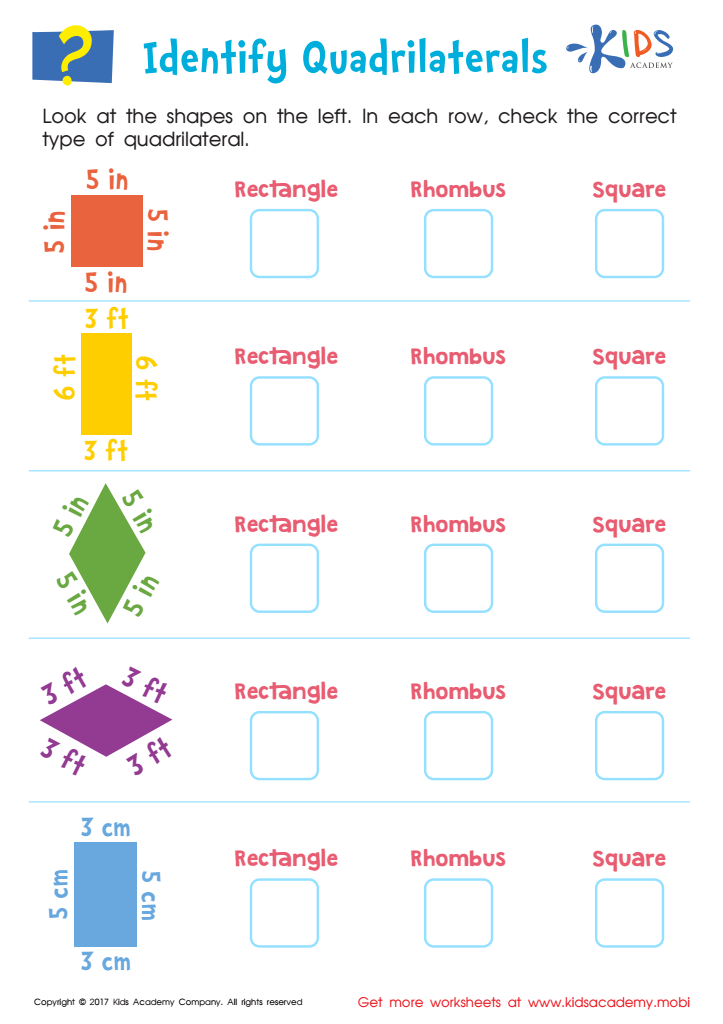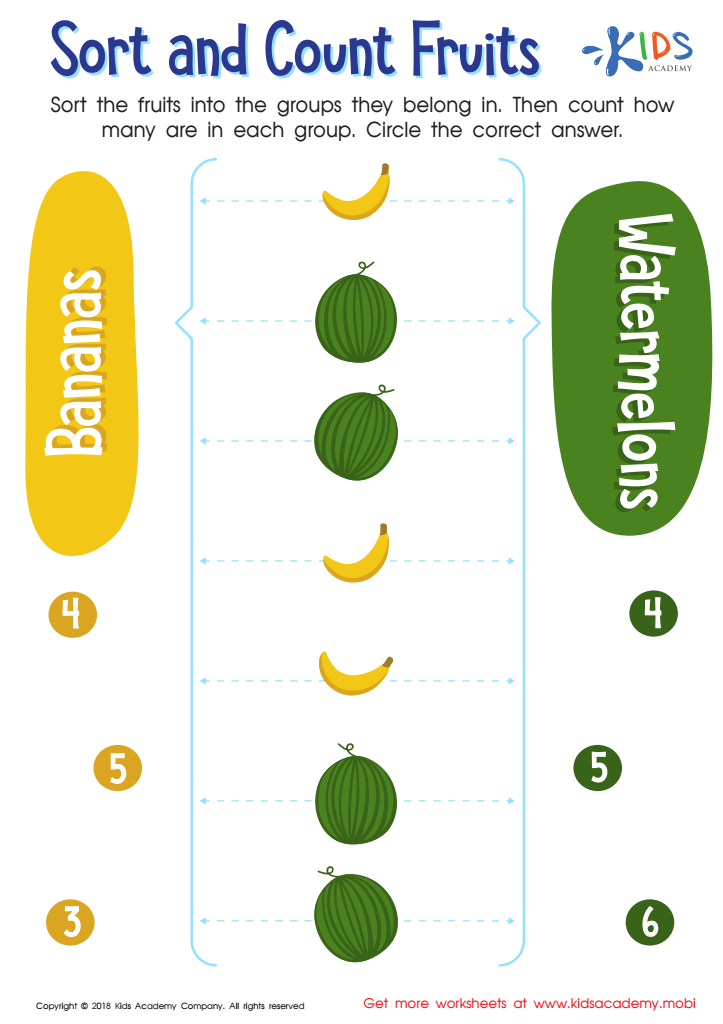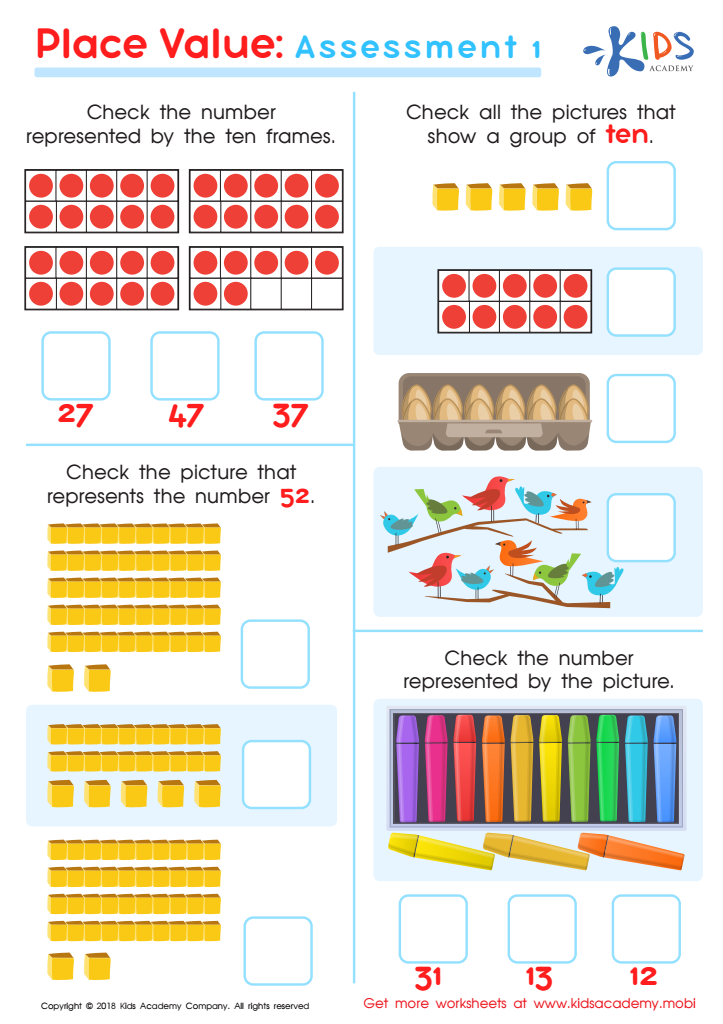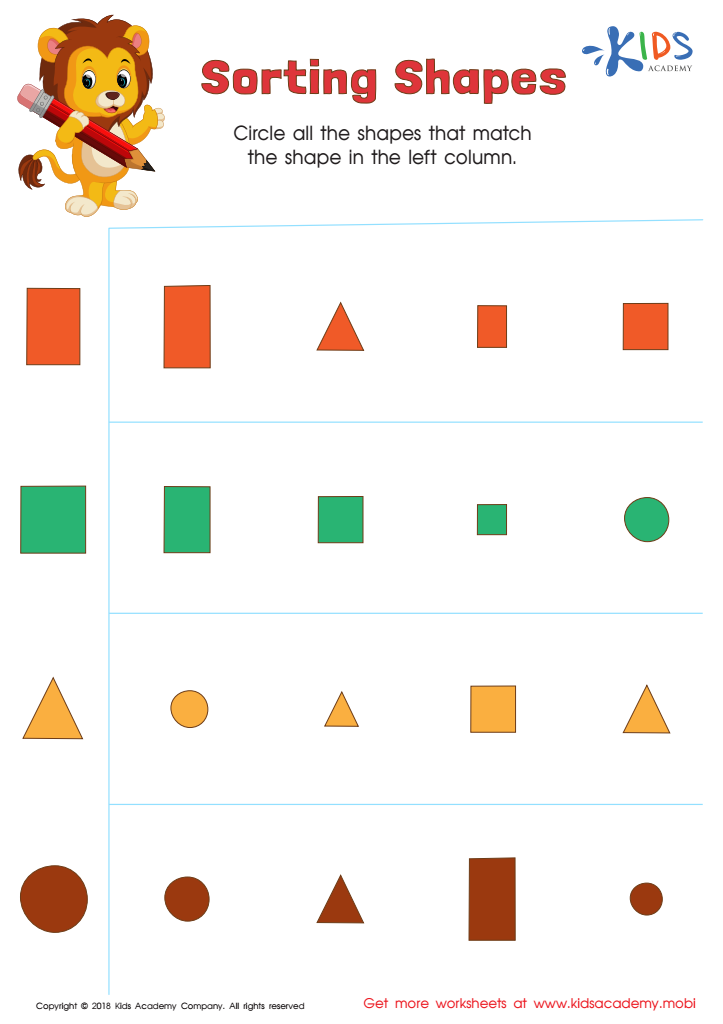Classification skills Math Worksheets for Ages 3-8
4 filtered results
-
From - To
Discover our engaging Classification Skills Math Worksheets designed for children aged 3-8! These worksheets help young learners develop essential categorization skills through fun and interactive activities. By sorting, grouping, and identifying similarities and differences, kids enhance their cognitive abilities while building a strong foundation for math concepts. Our carefully curated resources feature vibrant visuals and age-appropriate exercises, making learning enjoyable and effective. Perfect for classrooms, homeschoolers, or extra practice, these worksheets encourage independent learning and critical thinking. Explore our collection today and watch your child sharpen their classification skills, paving the way for future academic success!


Identify Quadrilaterals Worksheet


Sort and Count Fruits Worksheet


Place Value: Assessment 1 Worksheet


Sorting Shapes - Part 2 Worksheet
Classification skills are essential in early education, particularly for children ages 3-8, as they form the foundational building blocks for various cognitive processes. Parents and teachers should prioritize the development of these skills because classification helps children make sense of the world around them.
When children categorize objects, they learn to recognize similarities and differences, which cultivates critical thinking and problem-solving abilities. These foundational tasks contribute to numeracy skills essential for math proficiency. For instance, sorting objects by shape, color, or size inoculates children against misconceptions and promotes logical reasoning.
Moreover, classification activities enhance language skills, as children learn to describe and communicate their thoughts about groups or classes. Through engagement in classification, children also gain insights into organization and categorization, which are vital for further learning in science and other disciplines.
Additionally, cultivating classification skills fosters a sense of accomplishment, self-esteem, and social skills, especially when children work in groups. Effective classification activities can result in lifelong learning habits. Thus, parents and teachers should care deeply about nurturing these foundational skills, as they contribute to a child’s academic success and overall development in various areas of life.
 Assign to My Students
Assign to My Students


















